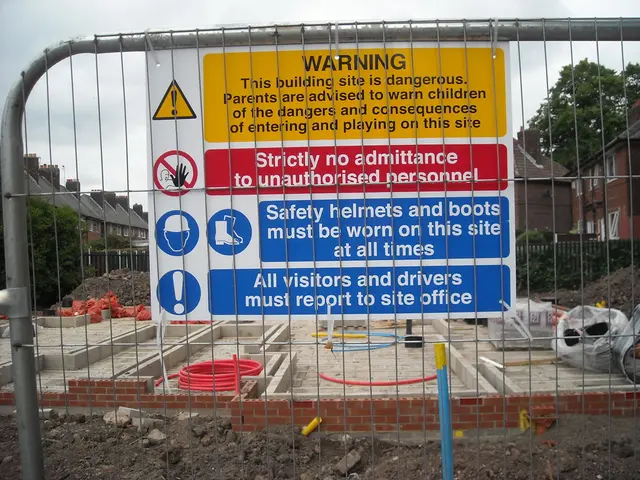Expanding Facial Recognition Use by Police forces in the UK, with 10 new vans set for deployment in local towns
The UK government is stepping up its use of Live Facial Recognition (LFR) technology by deploying 10 new vans across seven police forces in England and Wales. This move is aimed at enhancing crime detection, particularly for serious offenders.
According to the Home Office, the LFR vans will operate under strict rules, ensuring compliance with the Surveillance Camera Code of Practice and College of Policing guidelines. Only trained officers will be allowed to operate the technology under specific circumstances and robust oversight. The National Police Chiefs' Council (NPCC) and police leaders support the technology, claiming it allows officers to quickly and accurately identify suspects and prevent crime.
However, the expansion of LFR technology has sparked controversy and criticism from human rights and privacy groups. Amnesty International UK and Big Brother Watch, among others, have labelled the technology as "dangerous," potentially discriminatory, and prone to misidentification or wrongful arrests. Critics argue that the technology has a history of inaccuracies, particularly regarding people of colour, and that sufficient legislative safeguards are lacking despite years of police use.
The lack of regulation governing LFR is a concern, with Liberty and other civil rights organisations highlighting this issue as usage increases sharply. A House of Lords committee previously expressed deep concerns over expanding LFR use without proper regulation.
Currently, LFR use must comply with existing guidelines such as the Surveillance Camera Code of Practice and College of Policing rules, but there is no comprehensive standalone legislation specifically regulating LFR. The government has announced plans to launch a consultation in autumn 2025 aimed at developing a new legal framework for facial recognition technology and its applications in policing, reflecting the need for more detailed legislative control.
The Metropolitan Police has already significantly increased LFR deployment, citing responsible use amidst budget cuts and increased policing demands. However, this remains under public debate given the legal and ethical implications.
In summary, the UK government endorses the increased use of LFR vans as a valuable law enforcement tool governed by current police codes and oversight, with independent checks on bias. Meanwhile, privacy advocates demand stronger legal safeguards and regulations before further expansion, citing risks of discrimination, misidentification, and mass surveillance.
Read also:
- Smart-home integration inflates EV charging efficiency
- Sustainable initiatives boosted by Veolia through financially backed eco-friendly projects
- Potential perils of artificial intelligence data facilities to American electrical infrastructure due to fire hazards.
- Revival of US AI Chip Industry Kickstarted by Tesla-Samsung Partnership






